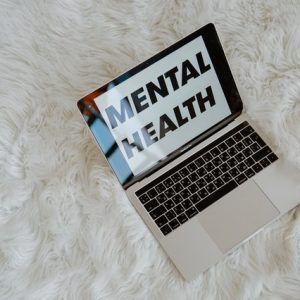We are as good as our states of mind, and all challenges are first solved mentally.
October 10th, 2021, is designated as World Mental Health Day. This sets the stage for conversations around mental health, an issue ailing the world, with an uptick in the 21st Century. However, these conversations must continue, and not be picked up only during a day designated for mental health.
The theme for this year is Mental health in an unequal world.
The elephant in the room: Untackled mental health issues
Mental health has largely gone unaddressed in our society, but its awareness is slowly gaining traction and recognition as a need that requires our attention. Untackled mental health issues manifest in the increased violence observed amongst youth, waywardness, a sense of hopelessness and helplessness.
The disintegration of the beautiful mosaic of our society and the family unit has affected our youth today. Young people seemingly no longer have sounding boards, resulting in unaddressed mental issues. Gone are the days when the family unit was a safe space for children. Now, in its place, the internet and friends have taken over.
Children growing up without the solid guidance of parents are prone to give in to the negative influences from the environment around them. This underscores the role male authority figures play in society when it comes to the character development of children and providing guidance as they grow. Research shows that children growing up in fatherless homes are more predisposed to deviant behaviour and lawlessness, increasing their chances of committing crimes and incarceration.
Youth and mental health
The increase in atrocities perpetrated by young people across the country emphasises the need to tackle problems related to mental health. The rapidly changing socio-economic situation contributes immensely to the pressure felt by the youth. Getting a job, settling down and starting a family, and financial progression are some of the challenges dealt with by most people. And the salt to the wound? The current deficiency in the proper governance of the country has not been a source of hope for most Kenyans.
Behavioural disorders, anxiety, attention deficit or hyperactivity, and depression include the manifestations of unresolved mental health problems among the youth.
Also read: Depression in Adolescents: Teen Counsellor Ivanna Waweru Talks Causes, Signs and Coping Strategies
As young people, we need to stand up for ourselves against those pushing us to get married, have kids, and be successful by a certain age. We must bear a voice that advocates for young people to appreciate their social, academic, financial, and professional journey and not feel pressured to achieve certain things by a certain age, as was the case in earlier generations. We are living in different times, a more demanding era that doesn't provide the space for all of us to move at the pace they did. So to those ahead of us— be patient with us!
Seeking help is brave, and should be encouraged
There are negative narratives peddled against those who seek help. The stigma around mental health is one of the reasons why mental health services are not the most sought-after in this part of the world.
In a society where the recipient of therapy and counselling services is frowned upon, it will be an uphill task to encourage and necessitate people to take charge of their mental health. It appears to be a global challenge, too. We are all aware of international celebrities who took their own lives despite portraying an image of perfection and happiness.
If not adequately addressed, we are staring at a challenge that will metamorphose into a national crisis and spiral out of control. We are as good as our states of mind, and all challenges are first solved mentally. Target 3.4 of SDG 3 aims to reduce premature mortality arising from non-communicable diseases through prevention, treatment, and promotion of mental health and well-being by 2030.
We must create awareness of the need for individuals to seek help in the event that such a need arises. Furthermore, we must normalise counselling even for children. Bereavement counselling, especially among children, is important when it comes to how they will heal and deal with loss in their adult life.
Be someone's sounding board
Employers providing medical cover to their staff can ensure that it covers mental health services. There exists tons of research that show the performance of employees affects the state of their mental health. Some firms offer mandatory mental health days once a month for every employee. Others have included a mental health day as part of their leave policy. The government could lead the way by ensuring this is implemented in the public service and encouraging the private sector to promote the mental well-being of their staff. Some firms have counselling services available to staff who are at risk of being affected due to the nature of their work.
Be a sounding board to those closest to you. Point those closest to you to resources that they can leverage on for support and advice.
Accessible mental health resources for youth in Kenya
In light of the 2021 theme for Mental Health Day, “Mental health in an unequal world”, the following are some of the accessible resources for youth in Kenya:
Counselling is free for youth at Kenyatta National Hospital. One can book a session via 0709 854 000 and request a transfer to the youth center, where you can proceed and book a counselling or therapy session. Session timelines depend on the issue at hand.
The Armed Forces Memorial Hospital also offers free counselling and therapy services to armed forces members and their immediate families.
Mathari Mental Hospital offers counselling and therapy sessions charged at Ksh. 500 each, but for the first visit, you pay an extra Ksh. 200. One can book a session by calling 0721336017.
If you are employed and have medical cover, check if your medical insurance covers psychiatric and psychological services that you can utilise.
Let’s normalise seeking help services and support those around us in whatever capacity we can.
Also Read: What Does Communication have to Do With Our Mental Health?





